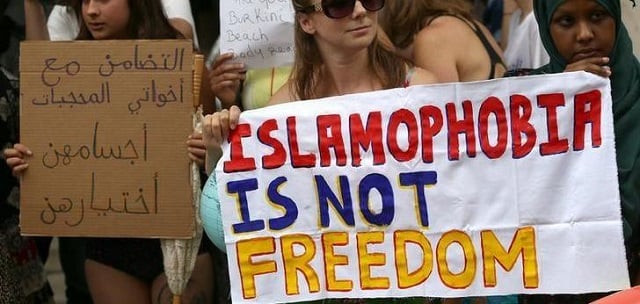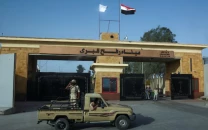2 years after Muslim family’s murder, Islamophobia still rising in Canada: Rights group
Action taken since attack on Afzaal family but Islamophobia still prevails in Canada, says Justice for All Canada

It was a pleasant Sunday evening when the Afzaal family ventured out for a leisurely stroll.
What was meant to be some quality family time ended in horror – and a painful tragedy that still scars Canada two years on.
A pickup truck plowed into the family as they walked along a road in London, a small city of around 405,000 some 200 kilometers (125 miles) southwest of Toronto.
Three generations of the Pakistani-origin family were killed that day: Salman Afzaal, a 46-year-old physiotherapist; his wife Madiha, 44, who was working on her doctorate in engineering at London’s Western University; their daughter Yumna, a 15-year-old honor-roll student; and Salman’s mother Talat, 74, the family matriarch.
The sole survivor was the couple’s 9-year-old son.
Tuesday marks the second anniversary of the horrific attack, which was a deliberate hate crime rooted in Islamophobia.
The perpetrator Nathaniel Veltman is facing four counts of first-degree murder and one count of attempted murder, with prosecutors labeling the incident an act of terrorism. His trial is set to begin in September.
In a statement ahead of the second anniversary, London Mayor Josh Morgan hailed the “remarkable” resilience of the city’s Muslim community.
“Combating hate of any kind takes courage, leadership and the ability to get up, and keep going every day. The resilience shown by the members of London’s Muslim community is nothing short of remarkable,” he said.
‘Significant spike’ in Islamophobia
In the aftermath of the heinous attack, changes were promised as authorities pledged to take steps to combat Islamophobia and protect Muslim communities across Canada.
But have they delivered?
It depends, according to Taha Ghayyur, executive director of Justice for All Canada, a human rights group based in Mississauga, near Toronto.
“All federal, municipal and provincial levels of government have taken concrete actions to improve Canadian discourse and awareness of Islamophobia,” he told Anadolu in an email interview.
These include infrastructure funding to address hate-motivated crimes in places of worship and appointing a special representative on combating Islamophobia, he said.
“It’s highly commendable that some municipalities have adopted Islamophobia as a strategic priority, even passing anti-street harassment laws related to the issue of Islamophobia,” said Ghayyur.
Also read: '72 Hoorain': Another Indian film called out for propagating Islamophobia
“(But) … as a human rights group we remain critical of Islamophobia in Canada. Despite these multi-government efforts, Islamophobia is still rising, so we expect leaders to demonstrate concern.”
He added that this past Ramadan, the Muslim holy month of fasting observed this year in March and April, had “shown us the rate of anti-Muslim hate incidents are getting worse in the Greater Toronto Area.”
“There has been a significant spike in attacks on mosques, including in Montreal,” said Ghayyur.
One way of creating a safer environment, according to him, is to ensure “better representation of Muslims.”
“We’d like to see a better representation of Muslims across Canadian municipal offices,” he said.
“Muslims in these spaces are underrepresented, including in Muslim-populated cities. Similarly, there needs to be a motion calling on all municipalities to make combatting Islamophobia a priority.”
In London, a vigil for the Afzaal family is set for Tuesday at the site of the tragedy, but many more events were scheduled during the month.
The public library is highlighting Muslim authors, the city’s museum has a London Remembers mural, and a question-and-answer session will be held at the London Mosque this Saturday.
Next week, on June 17, businesses in the area will open a garden of reflection and remembrance to honor the Afzaal family.



















COMMENTS
Comments are moderated and generally will be posted if they are on-topic and not abusive.
For more information, please see our Comments FAQ